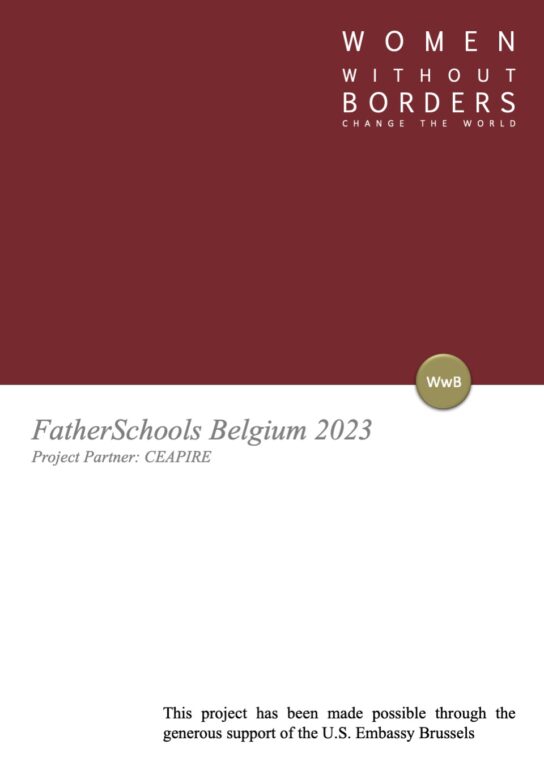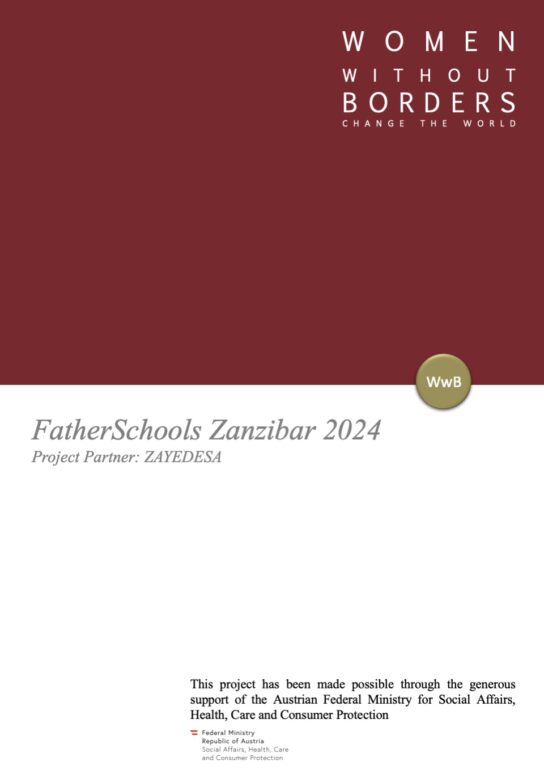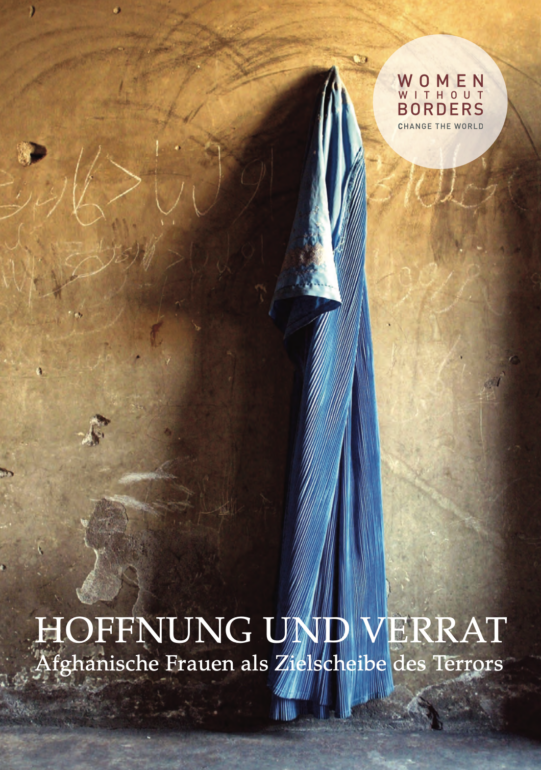Between 2021 and 2022, WwB implemented its ‘FatherSchools: Parenting for Peace’ Model in Belgium with its local partner CEAPIRE. The programme in Belgium, which is supported by the U.S. Embassy Brussels, saw three groups convene across Antwerp, Belgium, and Liége. This impact report offers an overview of the FatherSchools project in Belgium, introduces WwB’s impact model, and presents the impact findings based on quantitative and qualitative data from the perspectives of project stakeholders, including Participants, Teachers, and Notetakers.
Waves of radicalization of young people have been a concern across Belgium going back to the late 1980s. The most significant escalation occurred during the rise and demise of ISIS. Belgium is considered to have produced one of the highest rates of European foreign fighters who left to Syria and Iraq. Reports regarding the radicalisation of young people in Belgium show that recruiters often were found in the streets of Antwerp, Molenbeek, and Vilvoorde. Using both offline and online means, ISIS recruiters singled out and targeted the Moroccan community in particular and often face-to-face. With the fall of the Caliphate, the urgency of the situation appeared to have declined. Yet the prospective return and reintegration of former FTFs and their possible influence on communities has made clear that communities need to be resilient and prepared to counter the reintroduction of toxic ideologies, prevent further waves of radicalisation, and safeguard youths. As recruiters have shifted their focus increasingly to the virtual worlds of social media and gaming, community-level manifestations and active local-level recruitment has become less evident. This shift to the online sphere demands that parents become aware of the changing nature of racialisation dynamics, become closer to their children to detect early warning signs in real time, and respond effectively to an increasingly invisible issue in an informed manner.
Executive Summary: Participant Perspectives
Below is an overview of some of the key findings from the perspective of the Participants who went through the programme, receiving approximately 40 hours of training in PVE (preventing violent extremism), childhood development, security, peacebuilding, and communications.
Confidence | Fathers feel equipped to support their children through the phases of adolescence without controlling them, and by building trust and mutual respect instead. Fathers demonstrated confidence in reflecting upon their previous perceptions of a father-child relationship. They consider themselves good fathers without claiming to be perfect.
Competence in Parenting | Participants express feeling more quipped to support their adolescent children and employ their newfound understanding of the developmental stage of child psychology. They are working towards better understanding their children and are reflecting on ways to deepen their emotional bonds and communication culture with them.
Competence in PVE | At the FatherSchools, participants better understand the importance of early prevention and how working on family dynamics should be a key part of parenting from the outset. The FatherSchools group process is also an integral part of the early prevention focus, as younger fathers are learning from their older peers, and vice versa.
Applying the Knowledge | Following the FatherSchools, Participants report applying new parenting methods at a higher rate, which is proving effective in bringing them closer to their children. They are also reporting that their children are noticing these changes and commending their fathers on this transformation.
Breaking the Silence | Fathers appear to be at greater ease when speaking about conventionally taboo topics, marking a shift towards a more open culture of communication at home and their community as a whole.
Leadership | Fathers are showing a greater degree of self-reflection and aspiring to lead by example. This includes practicing what they preach and admitting to their mistakes. As such, fathers are also countering attitudes and behaviours typically associated with so-called ‘toxic masculinities’.
Trust | Fathers have begun to share their experiences and create a supportive, trusting environment that is conducive to learning and personal development.
Norms | The experience of the FatherSchools is supporting the process of making fathers more amenable to the new generation’s way of life and aspirations. The graduates report that they are now practising active listening, abandoning authoritarian communication methods, and affording their children greater freedoms than they themselves may have been afforded during adolescence.
Networks | Fathers are now feeling more connected and clued in on parenting developments due to their FatherSchools network. These relationships are also a resource that graduates can tap into at any point to find solutions and gain new perspectives when issues with their children arise.
To read more on the impact of FatherSchools Belgium 2021-2022, read the full report.



